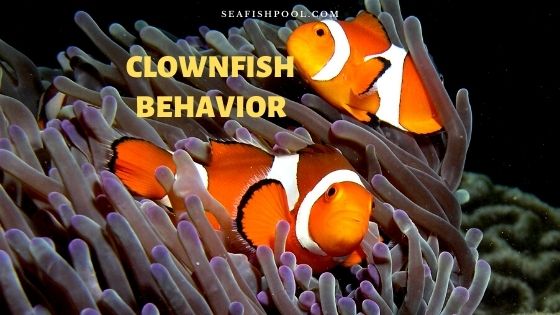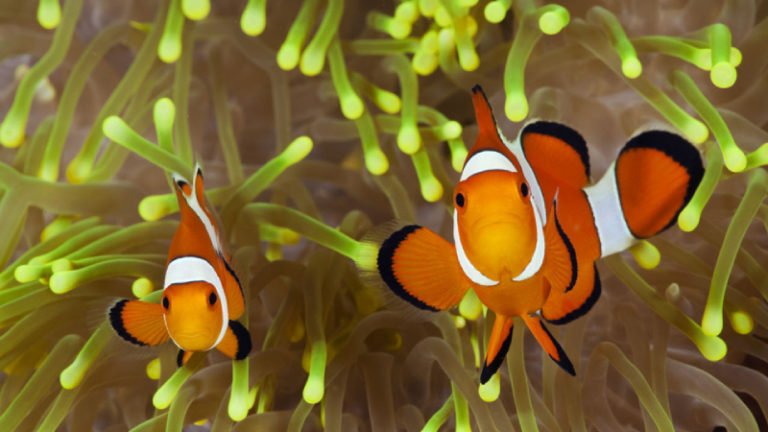Aggressive Clownfish
Aggressive Clownfish: Understanding Their Behavior
What makes clownfish aggressive?
You've probably seen clownfish swimming in tanks, beautiful and friendly companion fish beloved by many. But did you know that these cute little fish can be fiercely aggressive? While they may seem harmless, clownfish can display territorial behavior when it comes to their anemone homes, sometimes attacking other fish or even humans who come too close. Understanding what makes clownfish aggressive is key to creating a peaceful and harmonious aquarium environment.
The pain points of aggressive clownfish
When clownfish become aggressive, it can lead to a number of issues in your aquarium. Other fish may become stressed and even injured from the attacks. The aggressive behavior can also disrupt the balance of your aquarium, affecting the health and well-being of all its inhabitants. Not to mention, if you're not careful, you could be the target of an angry clownfish!
What triggers clownfish to be aggressive?
Clownfish aggression is primarily triggered by two things: territory and mating. Clownfish are known for being territorial creatures, and they will defend their anemone homes fiercely. This is where they lay their eggs and the anemone provides protection from predators. Clownfish may also become aggressive during the mating process, which can involve fights between males for the right to mate with the female.
How to deal with aggressive clownfish
If you have aggressive clownfish in your aquarium, there are a few things you can do to manage their behavior. First and foremost, make sure your aquarium is large enough to provide each fish with ample swimming space. You can also try rearranging the layout of your aquarium to create more hiding spots and separate territories. If all else fails, consider separating the aggressive fish from the others.
Personal experience with aggressive clownfish
As an avid aquarium enthusiast, I have witnessed firsthand the aggressive behavior of clownfish. I once had a pair of clownfish that became extremely territorial with the other fish in my tank. Despite giving them plenty of hiding spots and rearranging the layout of the aquarium, their behavior continued. Ultimately, I had to separate the pair to prevent any further harm to the other fish.
Understanding the target of aggressive clownfish
It's important to remember that aggressive behavior from clownfish is a natural part of their behavior. While it may be frustrating or even concerning for aquarium owners, it's important to understand that clownfish are simply defending their territory and ensuring the safety of their eggs and young. By making adjustments to your aquarium and managing their behavior, you can create a harmonious environment for all your fish.
How to manage aggressive clownfish in your aquarium
If you're dealing with aggressive clownfish in your aquarium, there are a few things you can do to manage their behavior. First, make sure there is enough space for each fish to establish its own territory. Providing hiding spots and rearranging the layout of your aquarium can also help create separate spaces for each fish. You can also try adding more food to your aquarium to reduce competition and aggression between fish.
Question and Answer
Q: Can aggressive clownfish be dangerous to humans?
A: While rare, aggressive clownfish can, in fact, be dangerous to humans. If threatened or cornered, they may attack with a painful bite.
Q: Can different types of clownfish coexist peacefully in an aquarium?
A: Yes, different types of clownfish can coexist peacefully in an aquarium as long as there is enough space for each fish to establish its own territory.
Q: Can adding more fish to my aquarium help reduce clownfish aggression?
A: Adding more fish to your aquarium can actually increase competition and aggression between fish. It's best to focus on creating a harmonious and balanced environment for your existing fish.
Q: Are there any plants or decorations that can help reduce clownfish aggression?
A: Adding live plants and decorations to your aquarium can create hiding spots and separate spaces for each fish, which can help reduce aggression. Be sure to choose plants and decorations that won't harm your fish or alter the chemical balance of your aquarium.
Conclusion
Aggressive clownfish may seem like a nuisance, but understanding their behavior and how to manage it can create a peaceful and harmonious aquarium environment. By giving each fish enough space to establish its own territory and providing ample hiding spots, you can ensure the safety and well-being of all your aquatic companions. And if all else fails, remember that sometimes the best solution is simply separating the aggressive fish from the others.
Gallery
Cute Little Aggressive Hermaphrodites - Clownfish Facts - More Fun Diving

Photo Credit by: bing.com / clownfish aggressive hermaphrodites
Clownfish Behavior - Can Clownfish Be Aggressive? - SeaFish

Photo Credit by: bing.com / clownfish
Blood Orange Clownfish (Premnas Biaculeatus X A. Ocellaris) - Shop
Photo Credit by: bing.com / clownfish blood ocellaris premnas biaculeatus
Photographing Anemonefish • Scuba Diver Life

Photo Credit by: bing.com / anemone clownfish aggressive host
Aggressive Clownfish: 6 Things You Should Do To Deal With

Photo Credit by: bing.com /